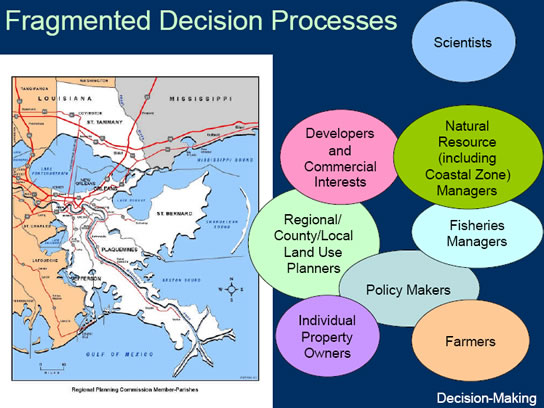Tutorials on Systems Thinking
Fragmented Decision Processes

8 / 20
Land and resource use decision-makers tend to operate within their professional and personal spheres of knowledge, interactions, or responsibilities. These spheres may overlap somewhat, but are not consistently integrated. Each sphere has its own laws, regulations, policies, legal jurisdiction and mandate, all of which unfortunately lead to a fragmented decision process.
For example:
- Land-use decisions typically focus on increasing economic viability with little attention to social and ecological effects
- Natural resource management decisions (including coastal zone management decisions) may not consider land-use decisions
- Corporate/industry decisions regarding investments, products, and waste management may prioritize short-term economic gain
- Farmers and individual property owners may make decisions that affect their land without considering effects on downstream waters or neighboring land
- Scientists do not always investigate issues most important to decision makers
- Decisions are not always coordinated across geographic “boundaries” (e.g., the many property, city, county and state jurisdiction lines in the delta region of Louisiana and Mississippi)
